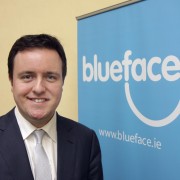Bringing broadband connectivity to the promised land
It’s a tiresome debate – tackling the rural/urban broadband deficit, yet high speed, reliable broadband connectivity is as important as other key pieces of economic infrastructure.
Just ask the people of the UK, who in a recent survey for the Institution of Engineering and Technology said that extending superfast broadband nationwide would deliver more economic benefits than building new airports.
Minister White inherits the unfortunate accolade of being the fifth minister of communications to publicly proclaim that high-speed, broadband connectivity will be made available to all, irrespective of geographic location.
So is there any reason to believe that the National Broadband Plan (NBP) – designed to inject a further €1 billion of investment to tackle this infrastructural deficit through a public/private partnership model – will come to fruition under his stewardship?
Liam O’Kelly, CEO with AirSpeed Telecom makes an analogy to the electrification of rural Ireland.
“Was there ever a commercial imperative or commercial viability in delivering electricity to those places at that time?” he asks. “The answer to that question was certainly no and it’s comparable when you look at broadband today. It’s very hard to make a case for a private company to deliver that type of capacity once you get beyond a company that is below a certain size,” he said.
But O’Kelly supports the plan and believes that nationwide broadband rollout “will come down to a greater level of public/private partnership”.
It’s familiar territory for the company following a joint project with enet, Ireland’s open access network operator, and investment of €500,000 to bring high speed fibre to all businesses in the town of Claremorris, Co Mayo.
“We used enet’s government metropolitan area fibre, connected onto that and deliver AirSpeed voice and data services over 250 Mbps connectivity to each of the businesses. There are a lot of resources in the public domain that can be used to solve this problem,” he said.
The company will replicate the business model with enet, when it comes to launch a new fibre broadband initiative for Kilkenny in October.
Eircom is more than half-way through its €1.5 billion investment programme and according to David Walsh, director of commercial and SME, the company is now targeting communities with less than 1000 inhabitants for high speed internet connectivity.
In September, the company announced an important milestone in passing its one millionth premises with superfast broadband in Cahirsiveen, Co Kerry.
“We recognise the need to have that ubiquitous availability of quality broadband and minimum speeds of 30 Mbps being available,” said Walsh. “While we’re intensely rolling out our own fibre footprint, we look forward to the rollout of the National Broadband Plan and want to heavily engage in that to make sure that it becomes a reality for those parts of the country that don’t have quality broadband access.”
And while such investment programmes may be of little comfort to those businesses with the blackout curtain firmly drawn on their shop front to the global world, hope may be at hand in the form of wireless internet service providers (WISPs).
“Businesses in rural Ireland are totally underserviced and there is a significant lack of competition,” said Ben Kitchin, director of Host Ireland Business Broadband. “But in the wireless space, there’s definitely a gap in the market for providing faster speed connectivity at a significantly lower cost. Money [from the NBP] will not be spent on local WISPs in rural Ireland and I think it should be as there may be a temptation to give the money to larger operators which could be just invested in their back haul networks.
“While wireless might have had some bad press in the past, service providers such as Host Ireland have totally re-designed how they deploy services to businesses, with incredibly robust network access and a huge amount of capacity,” said Kitchin.
It’s an approach that David Hughes, head of enterprise sales with Viatel supports but commercial challenges are always on the horizon.
“We have a good national footprint and the ability to address areas with licensed radio broadband, where fibre isn’t available. But there is a commercial business case. To provide licensed radio there are still license costs on ComReg, equipment costs and some smaller businesses might not be able to afford that as a service.
“If the government views this as a strategic, national imperative for indigenous business and foreign investment, that’s really positive but we need to make sure that it doesn’t slip. We’ve got to make it happen.”


Leave a Reply
Want to join the discussion?Feel free to contribute!